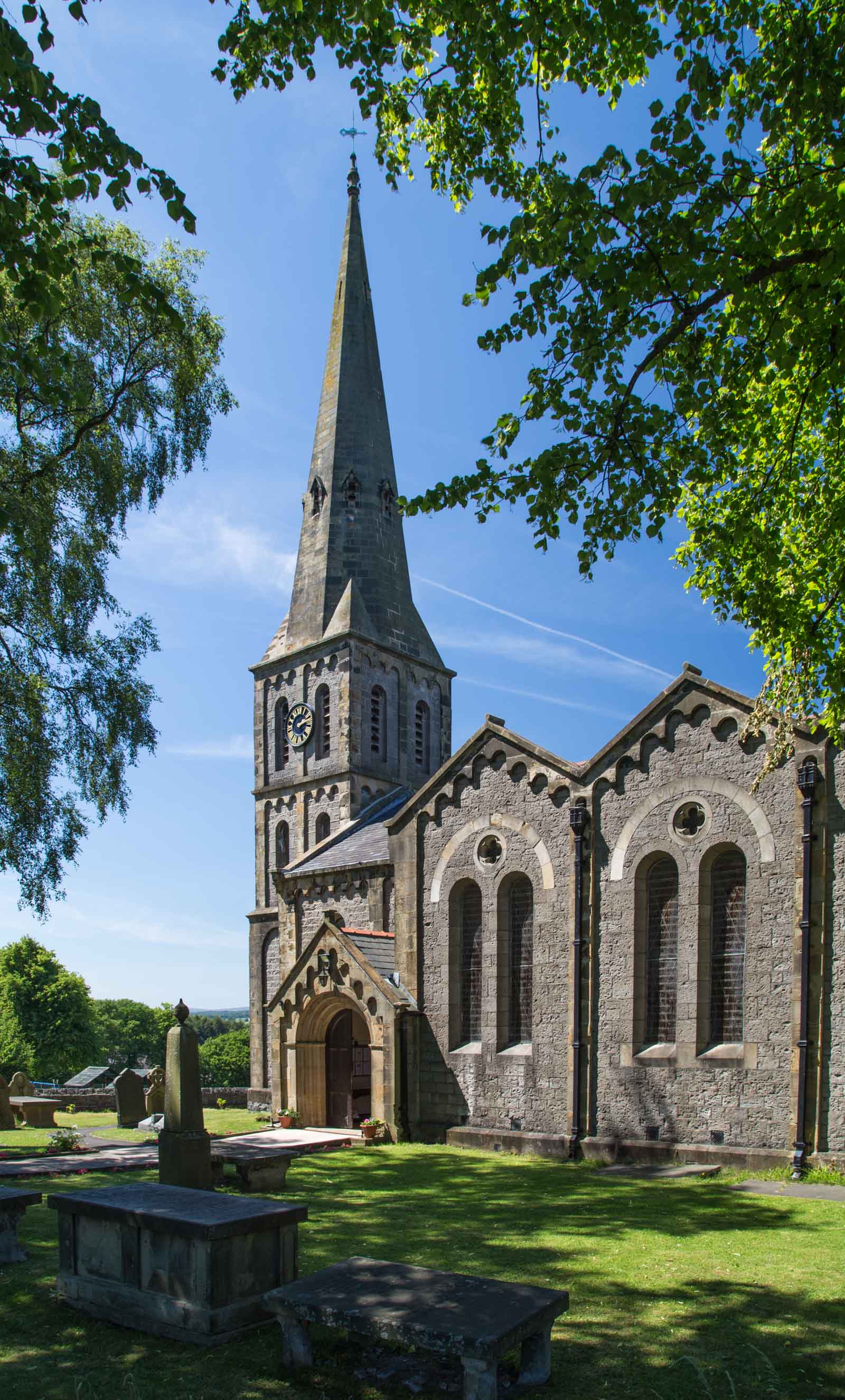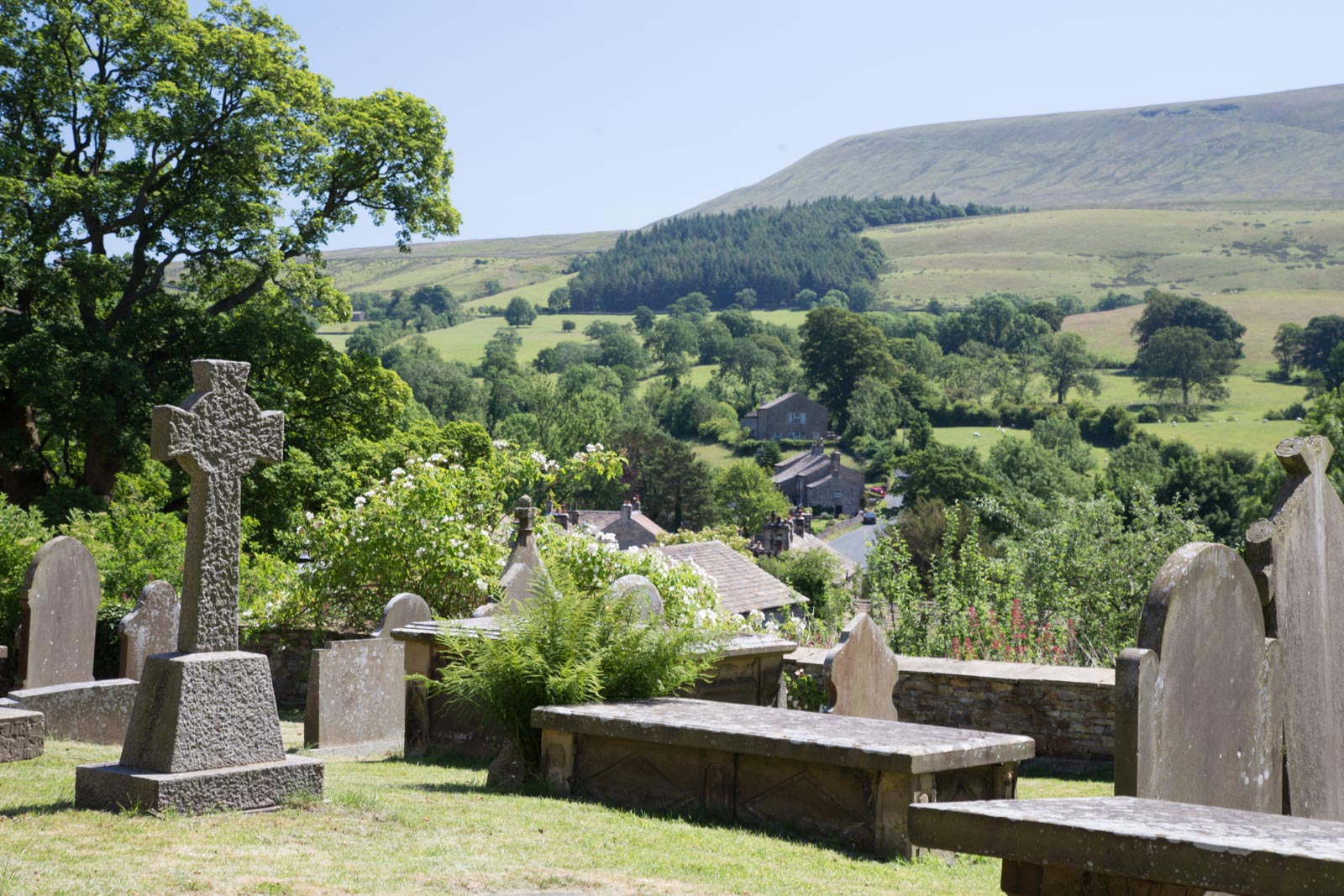[ ← VIEW ALL (Pendlefolk archive - Stories from Pendle Hill) ]
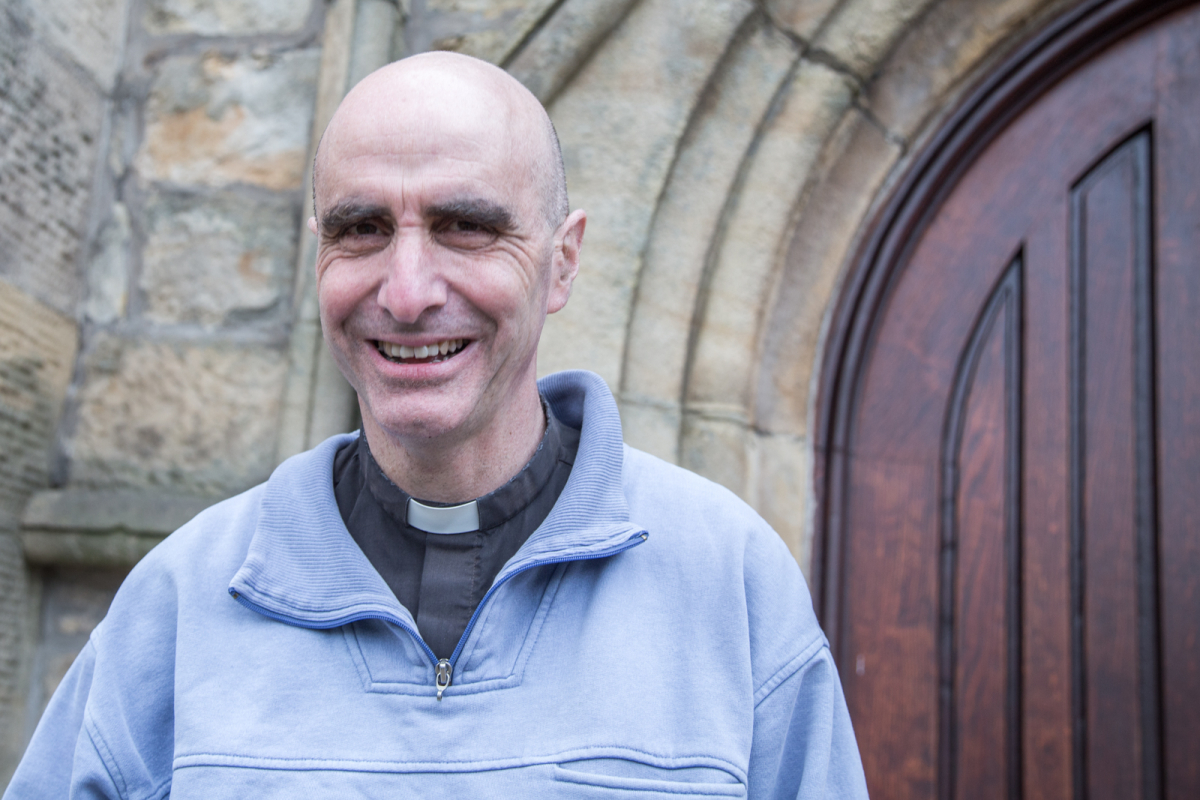
Andy Froud on Death Cafes and Lego Churches
Interview by Sue Marsden & Evangeline Atkinson
Andy Froud moved to Clitheroe eight years ago to become vicar at St Mary Magdelene’s Church. His responsibilities don’t stop there though as he has become priest in charge at Chatburn Christ Church, St Leonard’s Church in Downham, and St Paul’s Church, Low Moor. He is part time chaplain at the hospital, year chaplain at St Christopher’s High School and will be chaplain to the town mayor next year. He tackles his heavy workload with a warmth and positivity that pulls the local community together and when he’s not on duty you can spot him running through town or up Pendle Hill.
You have a great number of responsibilities, how do you fit it all in?
I don’t fit it in at all, I just run around (laughing). I try not to sit down and think about it. Like this lunchtime we did Christian Union at the Grammar school and then I’ll be off to see some people about getting married up at Downham, that’s my next port of call after this. So I’m always on the move. But it’s great. It’s a wonderful place to live. The people are so friendly and we have a lovely house and lovely churches.
You’re one man doing all those jobs, but wouldn’t the churches have had vicars of their own previously? What’s changed in the workload? Is it the fact that you can drive between locations and get around quicker nowadays?
A couple of things have changed. Like everything else, everybody for some reason seems to be doing more work because of lack of resources. But it’s not just lack of resources, we are actually advertising at the moment for an associate minister. The difficulty is a few years ago they kind of said ‘Oh no we’re going to run out of money, we’re going to cut back on the workforce’, and actually they cut back too far. Now there’s the money but there aren’t the people. People are coming through the training system but of course that’s three or four years down the line. So just at the moment there is quite a lot of work to do, but y’know it’s the same when you talk to the police or when you talk to doctors. Somebody put an old photo on Facebook of Clitheroe Police Force and there were 20 of them just for Clitheroe! In comparison, now apparently there are some nights when there is 1 policeman for the whole of the Ribble Valley. It’s mind-blowing because, as one of them pointed out to me, that means that if you get caught for drink-driving, by the time the other one comes to collect you, because they need two to process you and take you to Blackburn, you’ve probably sobered up. Haha I’m not in any way advocating drink driving, but I’m just saying it’s not unique to the church.
But Downham and Chatburn have been linked for over 20 years and before Rodney Nicholson retired St Mary’s was my sole responsibility so swings and roundabouts. But you’re right about the car thing. I do cycle quite a lot though. In fact some people don’t believe I can drive… including my wife I might say!
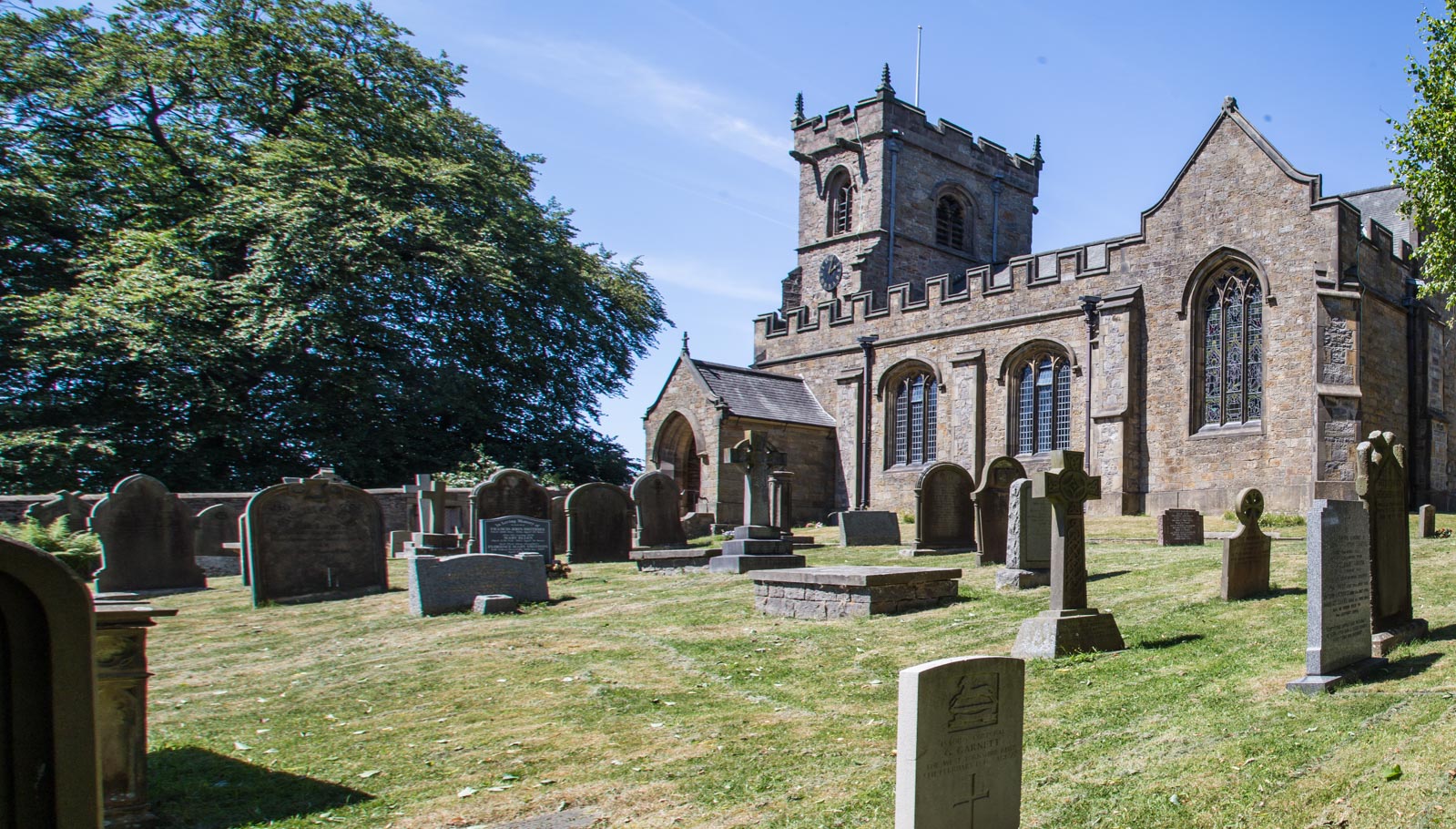
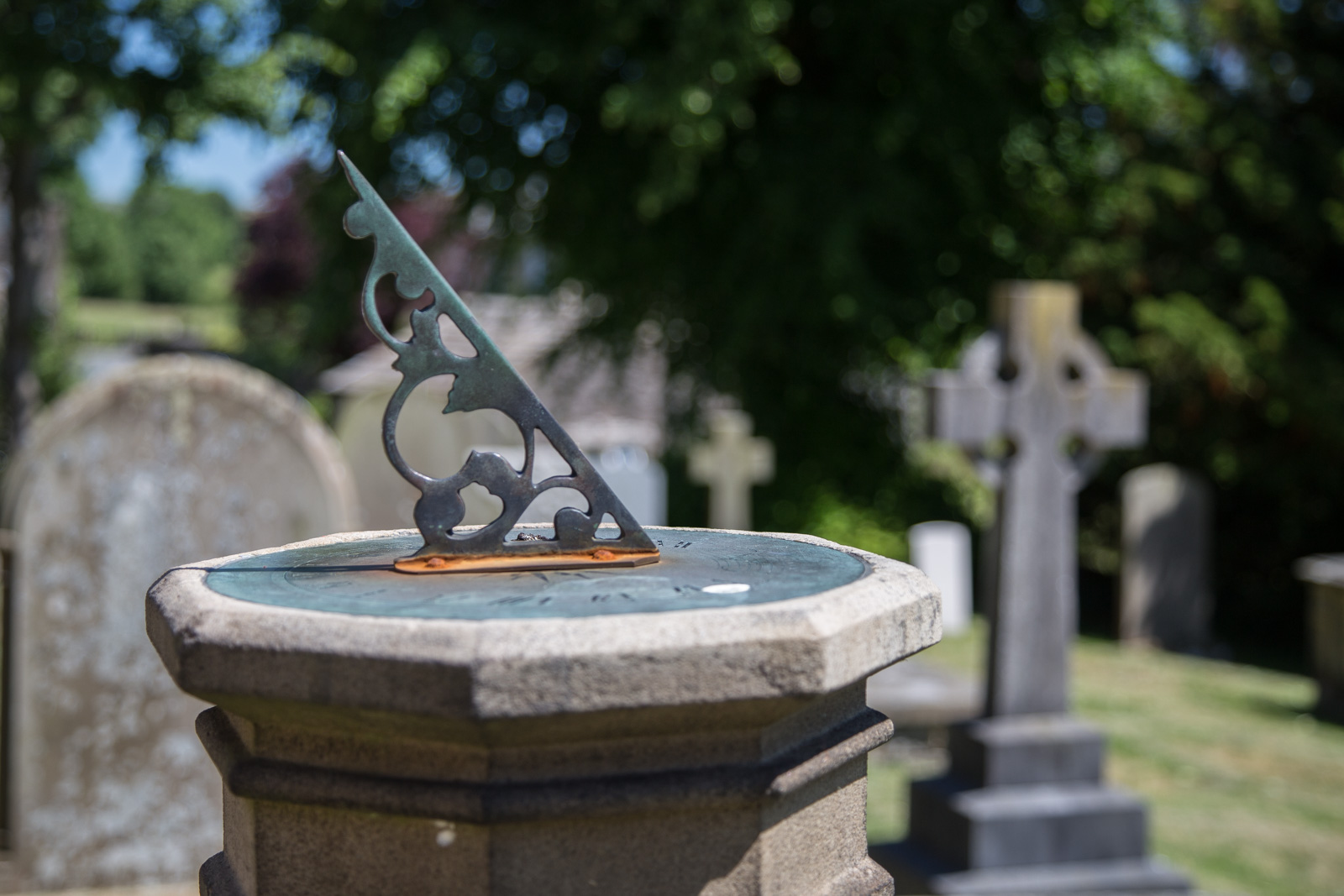
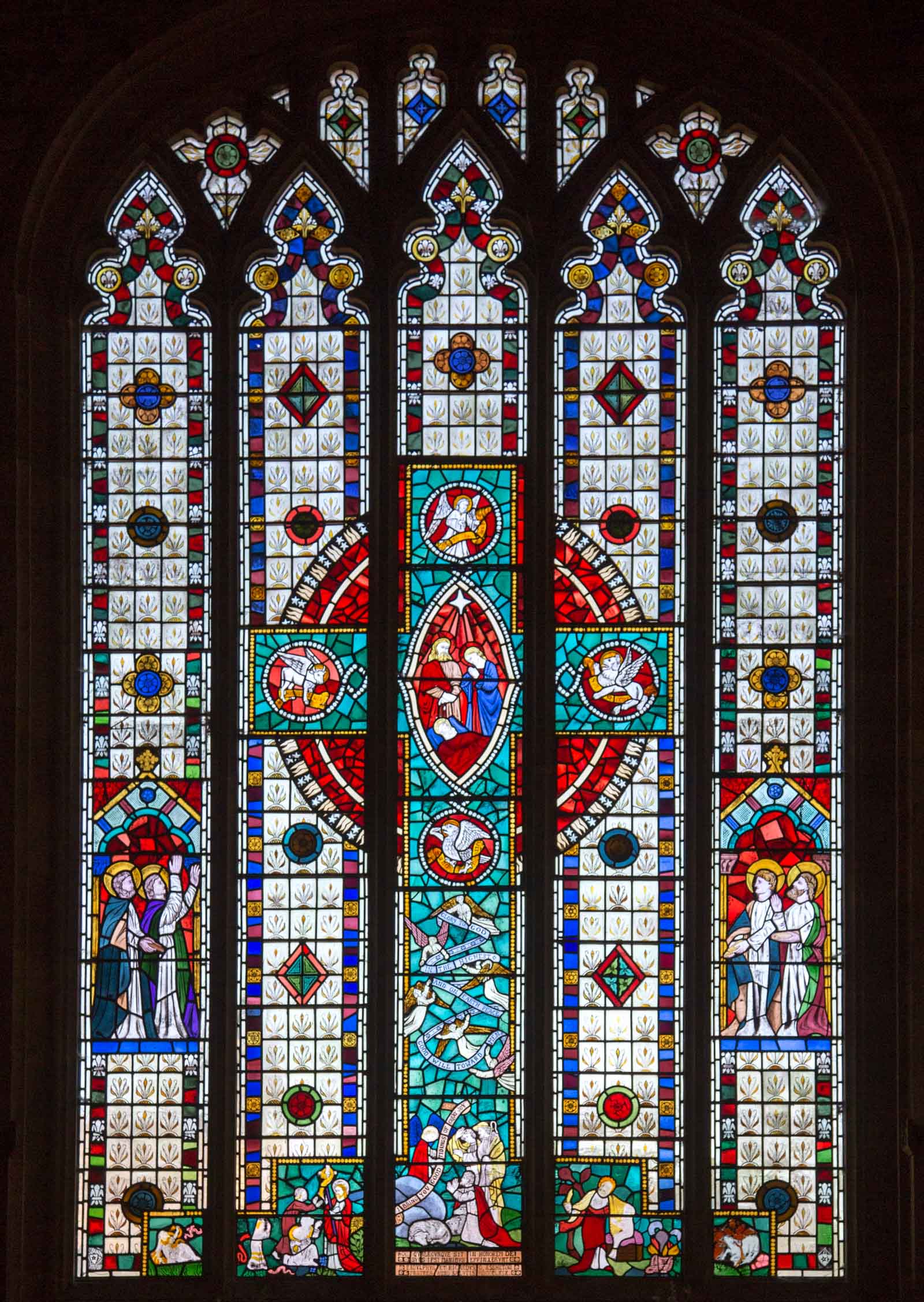
It must mean that no two days are the same?
Yes, it means a lot of variety which is great, I love that. I would hate to be for example a funeral director where all you do is do funerals… obviously I help with funerals and people who are bereaved, but I also do christenings and weddings and just going to see people in all kinds of situations. I think the oddest phone call I’ve had, it wasn’t in this Parish, it was when I was in the Isle of White, and I was vicar of a place called Wootton which has a creek – it’s called Wootton creek. It had some house boats on it and I had a phone call at about 10 past 8 in the morning from a guy saying ‘My house boat has slipped its moorings in a storm’. If you’re in a tidal area a house boat has to be dug into a hole you see, they dig a hole under the house boat and then when the tide goes out the boat goes down into the hole and then rises up again and you have hinges on your gangplank. But of course when it had shifted it had gone on its side, it was okay at the time but the tide was going to come back in and his whole house was going to go. So who do you phone? You phone the local vicar, who unfortunately had come previously to that from Yorkshire in Huddersfield, which is about as far from the sea as you can get! So I’m kind of like ‘Why are you asking me this? I haven’t a clue how to help you!’ and I started thinking do what I always do. so I said I’ll have to get back to you. I thought about it and I thought hang on a moment, I know at least three people who belong to boat clubs in our congregation, so I phoned them and they phoned their friends. I went down to the local school and caught some people at the school gates and we got everybody together and we pushed his houseboat back into position before the tide came in.
You mentioned that you haven’t always lived in the Clitheroe area, what were your first impressions when you moved here?
Well, it was raining so hard the removal men had to stop work, and this was in July! The removal men said they wouldn’t move our furniture because it would have just be ruined before it got in the house. So yeah that was my first impression! [laughing] We’d come from Blackpool but it does rain a lot more here than it does in Blackpool.
What were your thoughts when you got to know the community?
Well, just as I say, that I love it. I love the shops, I love the fact that I can just meet so many people that I know in the street and people have always got the time of day to stop and have a chat. People look after each other, take care of each other, there is a real sense of community in Clitheroe, which I hope lasts despite all the new building, which is controversial. I think we’re going to have to think about new ways of being a community.
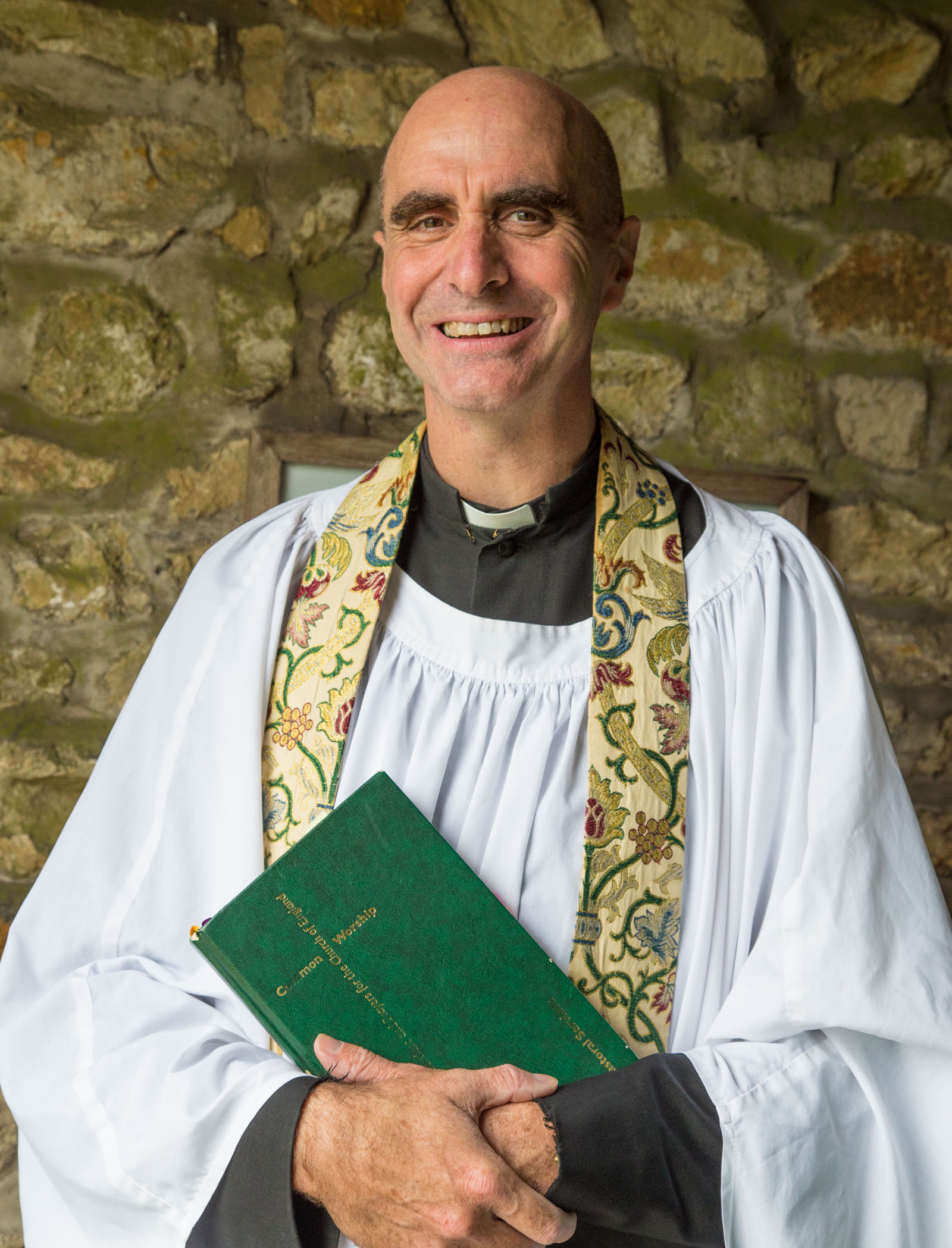
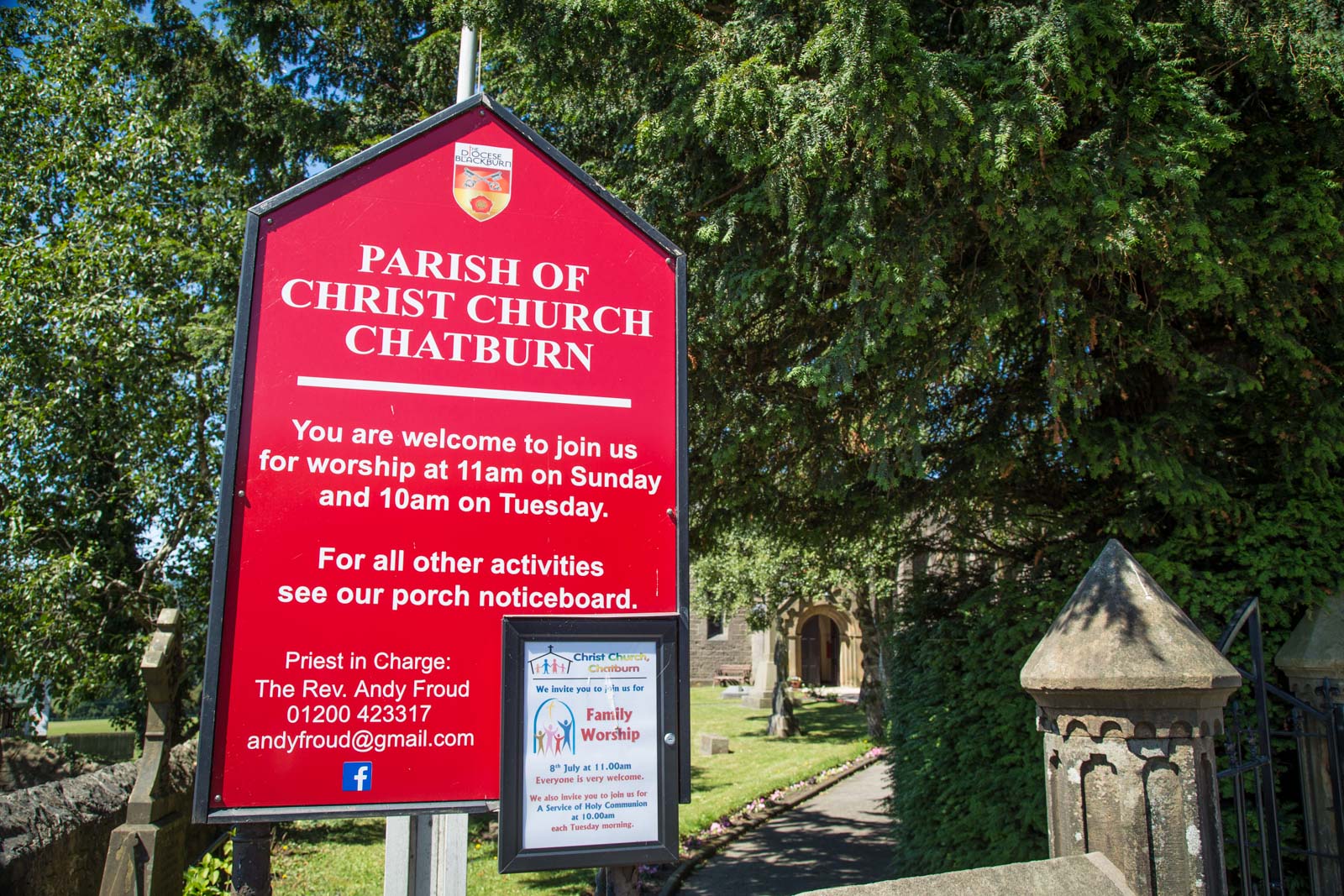
Do you think that’s one of the biggest strengths of doing your job in a small town, that people recognise you and you recognise them?
Definitely! I think being known and knowing people is absolutely key. People say I have a good memory for names, they say ‘You know everyone in Clitheroe!’ I say ‘No my boss knows everyone in Clitheroe, I’m just working on it’ … haha you can use that. But I do make it a point, even if I have to use the car, I will park the car at a distance away from wherever I’m going to because that way you meet people in the street and I think people like to see me there. It’s like getting back to the copper thing, people like to see the police on the street and I think that people like to see their vicar on the street.
When I first moved here I met a Polish couple who had come to England for a job with a flat and they turned up to discover that there was no job and there was no flat. They had literally got off the plane in Manchester that day and were walking down the street when they saw me. Unfortunately at first they thought I was a Roman Catholic priest of course, but the thing was they had virtually no English at all. So I tried phoning up the Roman Catholic Polish chaplaincy and in the end I found a translator through the library. The library managed to find them a place to stay through the translator – because again they’re a community. They can say ‘I know somebody who knows somebody who’s got a place where these two can stay’. And I think it was about a year or two later, I bumped into the polish man in the street and it was lovely because he just came and gave me a big hug. They’re doing really well, they’ve both settled in. It’s nice to be able to have a positive impact on somebody just by accident. And that’s part of being in one community. Two children at children’s church recently took their first steps actually in church which is brilliant. I just love that. It’s such a privilege to be there when somebody actually takes their first steps.
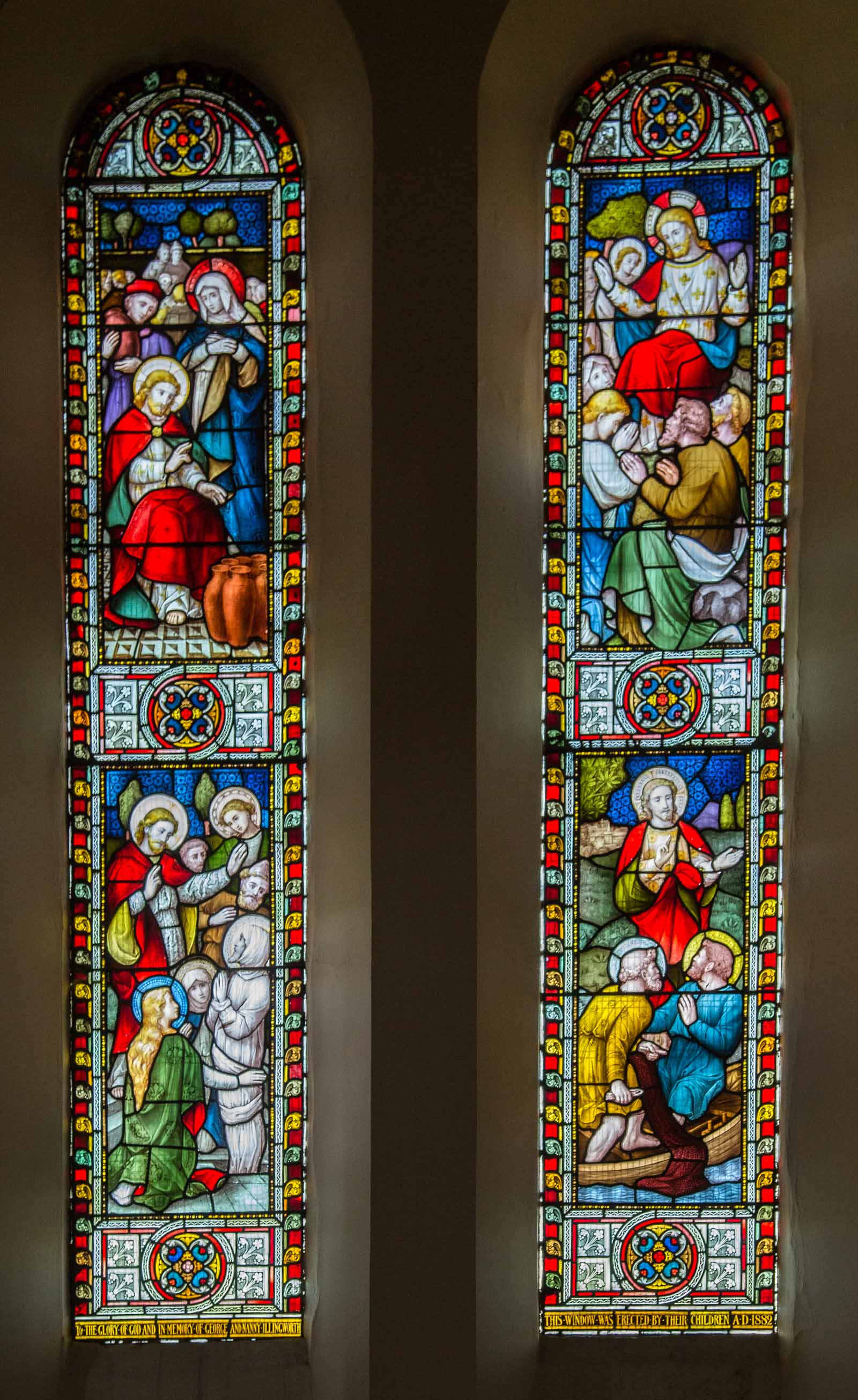
You mentioned you’re in high demand for weddings and funerals with people from Clitheroe and this area. Do you also get people coming from further afield?
For weddings particularly yes. Although people come back from Christenings as well. They could have extended family…we’ve got a christening coming up in Chatburn where they’re just coming from Keighley but we have had people come from Abu Dhabi, Kuwait, America, places like that so people can have their family with them. And weddings, yes we have people coming from Bolton, Manchester…one lady came from London to get married at Downham and there are rules about this (you have to actually attend the church to get married there if you have no other connection) and the only connection she had was she went to Downham as a child with her parents and fed the ducks and fell in love with the place. So I explained and she was absolutely fine with this so for six months she came up from London, not every weekend, but most weekends to worship at Downham, and that was a very very special wedding.
Ooh and I’ve got a good story about the Inn at Whitewell. I was doing a service in the church there and I have never ever had this before but somebody put their hand up at that bit when you object and everybody looked kind of shocked. I’m looking at this woman thinking it’s a long time since I was at college, I can’t remember what I’m supposed to do now. She looks round and just said ‘Oh no I was just pointing the ceiling out to my granddaughter’. The poor groom was there going ‘It’s my mother’! I said ‘Yes, but did you have to do it at that precise moment?’. She was obviously having a merry old time with her granddaughter and was paying no attention whatsoever to what was going on.
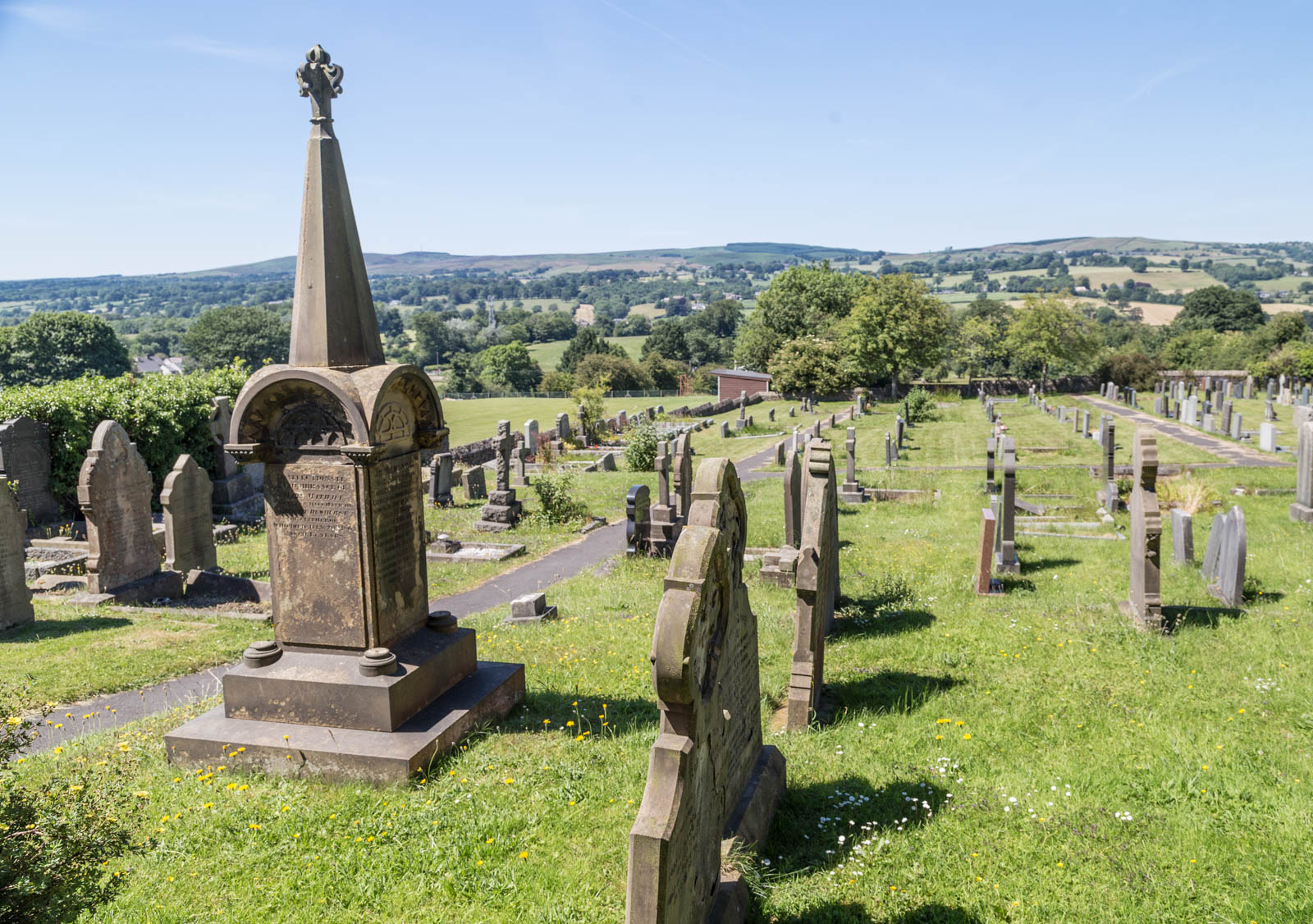
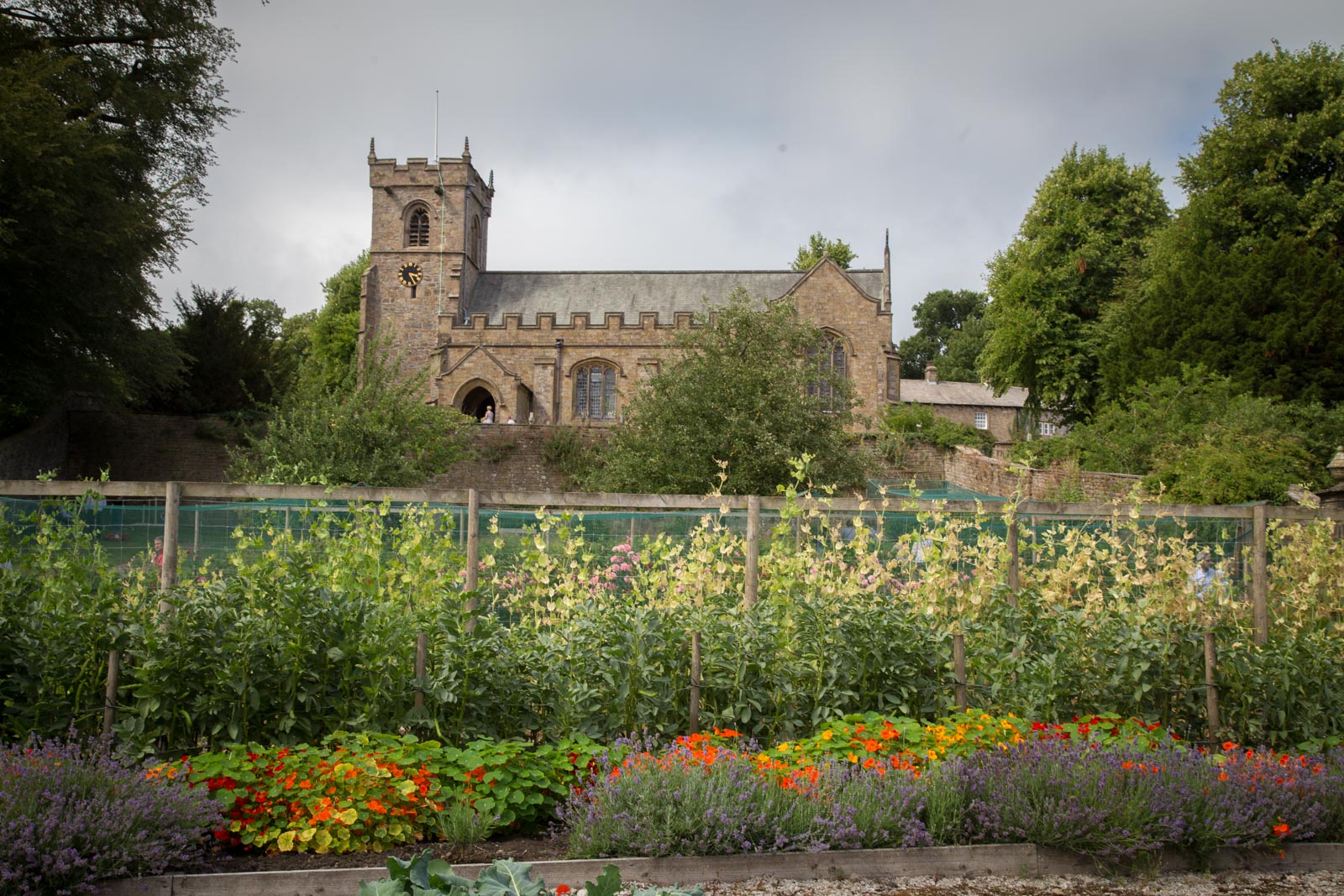
Speaking of church ceilings, St Mary’s has undergone a huge amount of restoration work under your watch, how did that come about?
Before I got here the roof was leaking so they had to get a complety new roof. The organ, I don’t know whether that was damaged by the water coming through the roof or what, but they had the organ done as well. And that was before I even arrived. Then when I arrived, literally the first piece of paper on my desk was a letter from the Archdeacon of Blackburn saying “What are you doing about the spire?”. My initial reaction was what am I supposed to do?, I didn’t know what the problem was. And then I read this report, which I had actually been given a copy of before I started the job because they make sure you know what you’re getting into, and there was just a line saying that a stone had fallen off the spire into the churchyard and something needed to be done. So I got the architect on it and it turned out to be really really bad news, because when this spire was built in Victorian times they were in a big rush to build a great load of churches, the old tower is around 500 years old, absolutely solid, but the spire was added at a later date and when you look at it you can see the join. The architects explained to me that there just weren’t enough traditional stone masons to go around back then so they got all sorts of people in to do the work. It’s not that they did it badly, but a traditional spire would just hold up under gravity, like the way you build a house of cards. They were obviously a bit worried it was going to fall to pieces though, so they put a load of iron in it. Iron was the new toy, it was the new thing, y’know it’s lovely stuff. The problem is, up there of course, it’s exposed to the full elements and the stone is porous. The water got in and over a hundred and fifty plus years it suffered from, not rust, but what’s called anaerobic expansion. There was no air getting to it but it still expanded and of course that was forcing stones out.
We looked long and hard and thought that, although it was tempting to just try to patch it up, the concern was the more work you did the more you were going to find to do. In the end we decided that the only thing to do was take the whole thing down and rebuild it. We had it laid out at the back of the church like a massive jigsaw puzzle and you can still see of course where the stones that had been damaged beyond repair have been replaced. It looks a bit of a Lego church now.
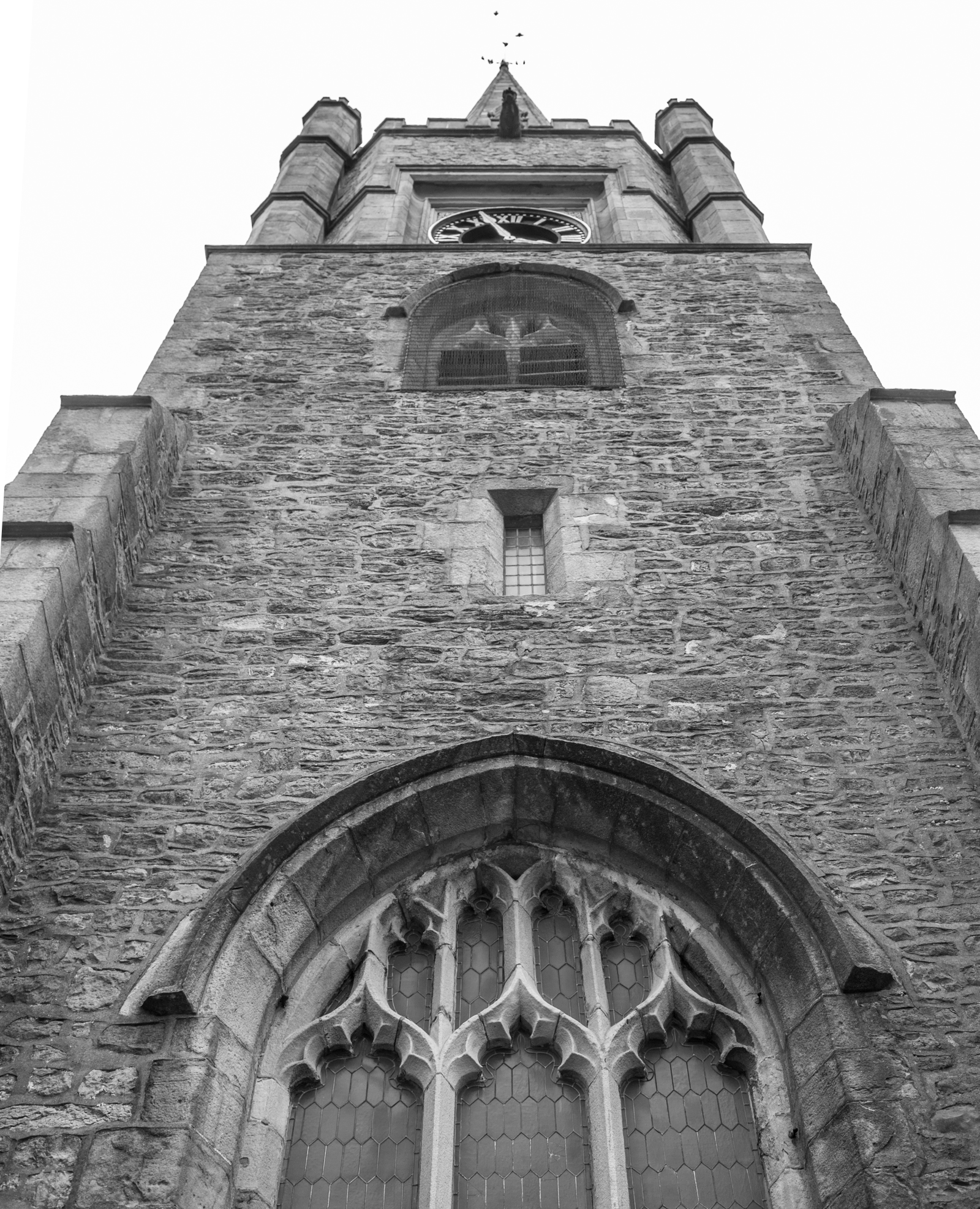
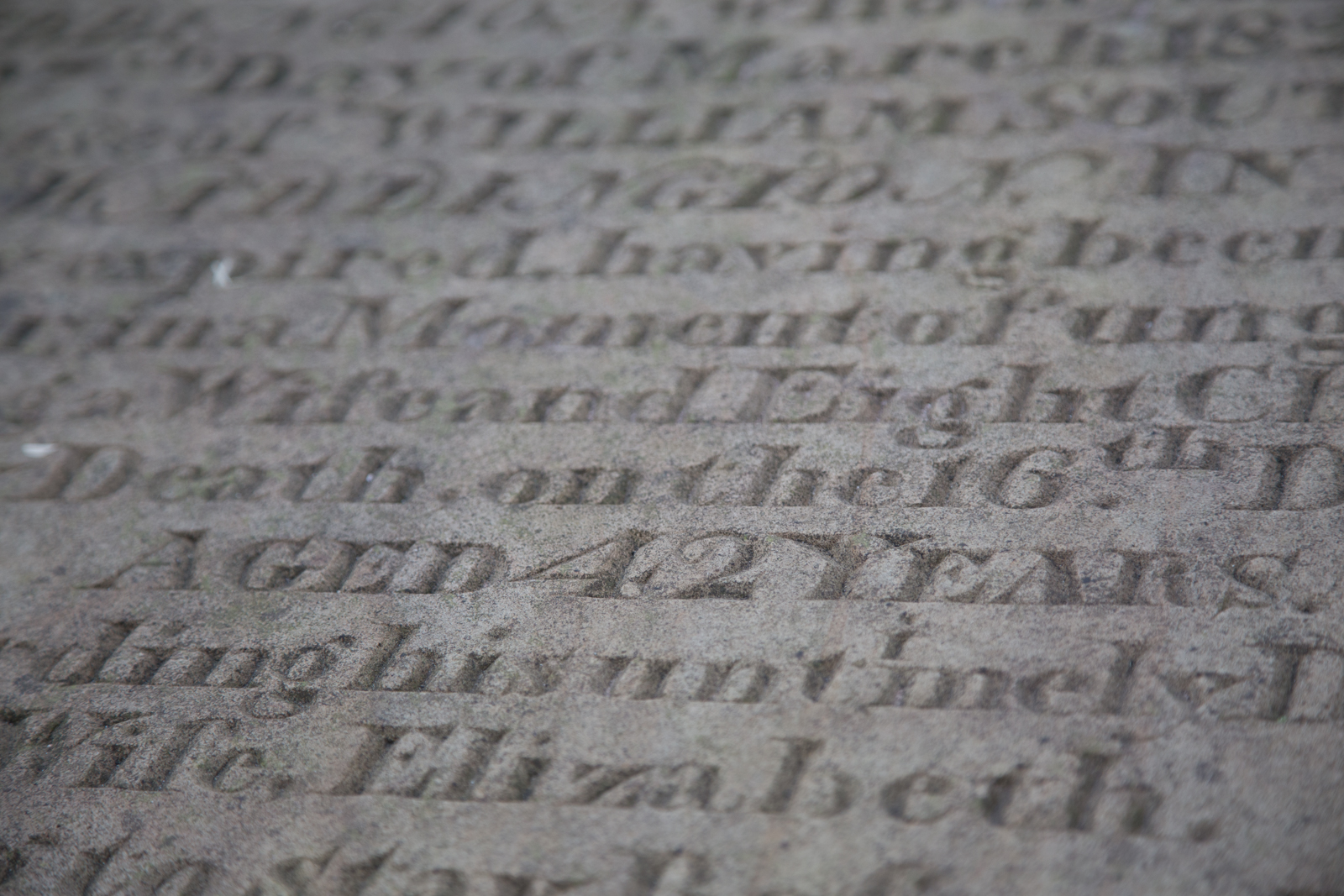
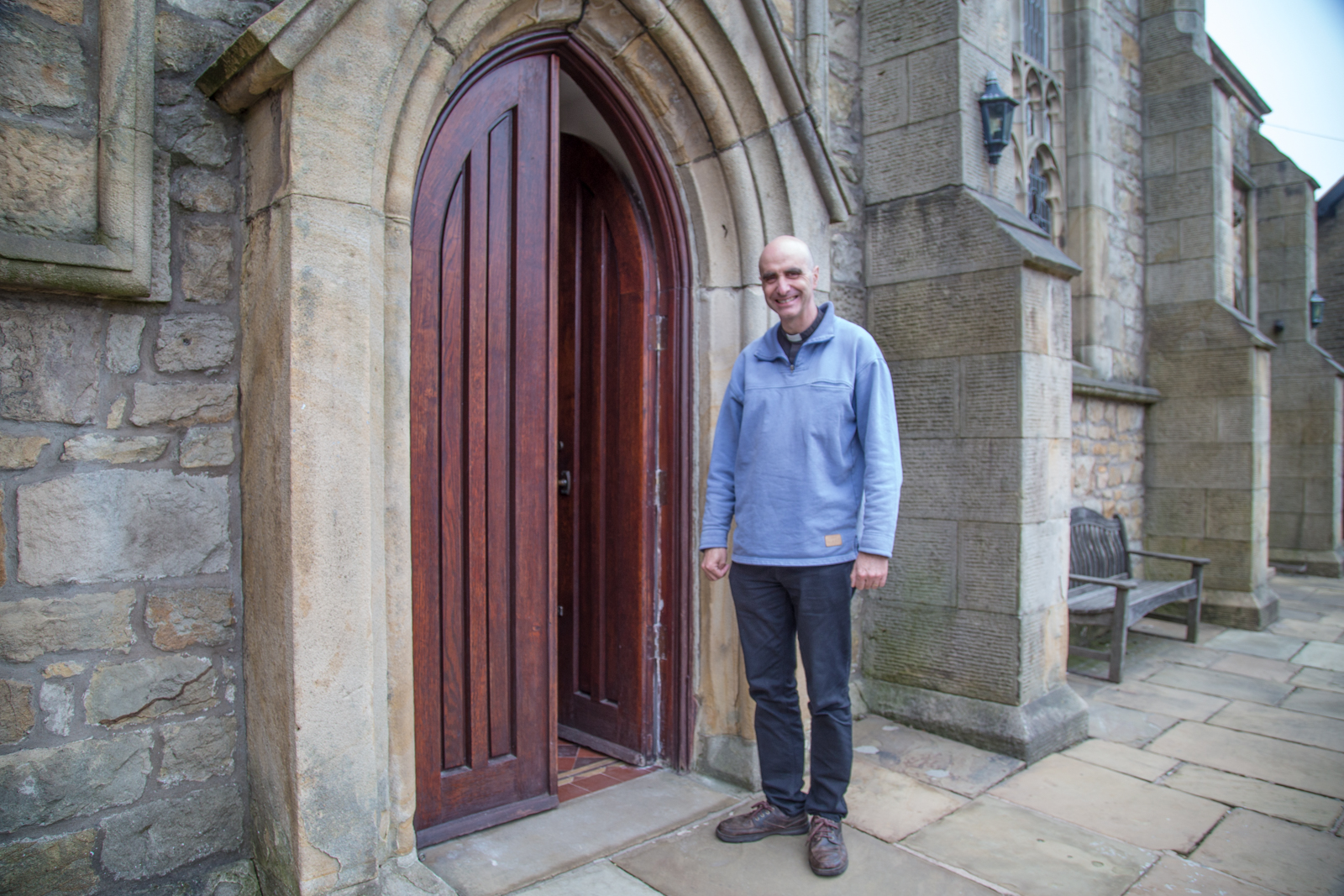
That does sound like an impressive job! Was it difficult to raise the necessary funds to carry out such a large-scale project?
The spire cost about half a million pounds of which over half came from English Heritage. We were very fortunate to get one of their last big awards. It was a huge effort by everybody to raise the rest and everybody really pulled together, people were so generous. Somebody put a cheque for 5 grand through my door and it was a building society cheque so I have never discovered who that was from. It was a truly anonymous donation. And do you know the lovely thing about that is I look around town and think I wonder if it was them? Maybe it was them? That’s a nice thing to do.
But the restoration work didn’t stop there…?
So we did that but then people were saying “Oh now the church is looking a bit shabby and we want to do something with the choir stalls and reorder the front of the building to make it more welcoming to people”, so we got on with that and that was another 200 thousand pounds fundraising which was pretty well all raised either by bequests or fundraising. So again, people have done really well and it does look really spectacular now, especially with the lights on, the lighting really does bring it to life. We got rid of all the horrible 1970s lights that used to clutter the pillars so now you can see it as it was when it was first built.
And you recently installed a new heating system, I bet people really appreciate that in the winter months?
Yes, that’s the other thing we’ve got but you wouldn’t notice that at the moment (it wasn’t on that day). But that is the thing people really do notice, the heating. I was mortified years ago when I was talking to a kid who’d been at the grammar school and he said “Oh yeah I know your church, it’s the cold church isn’t it?”. That was the tipping point for me, I thought no, we’re not going to have a cold church. You’ll find it’s warm all year round now.
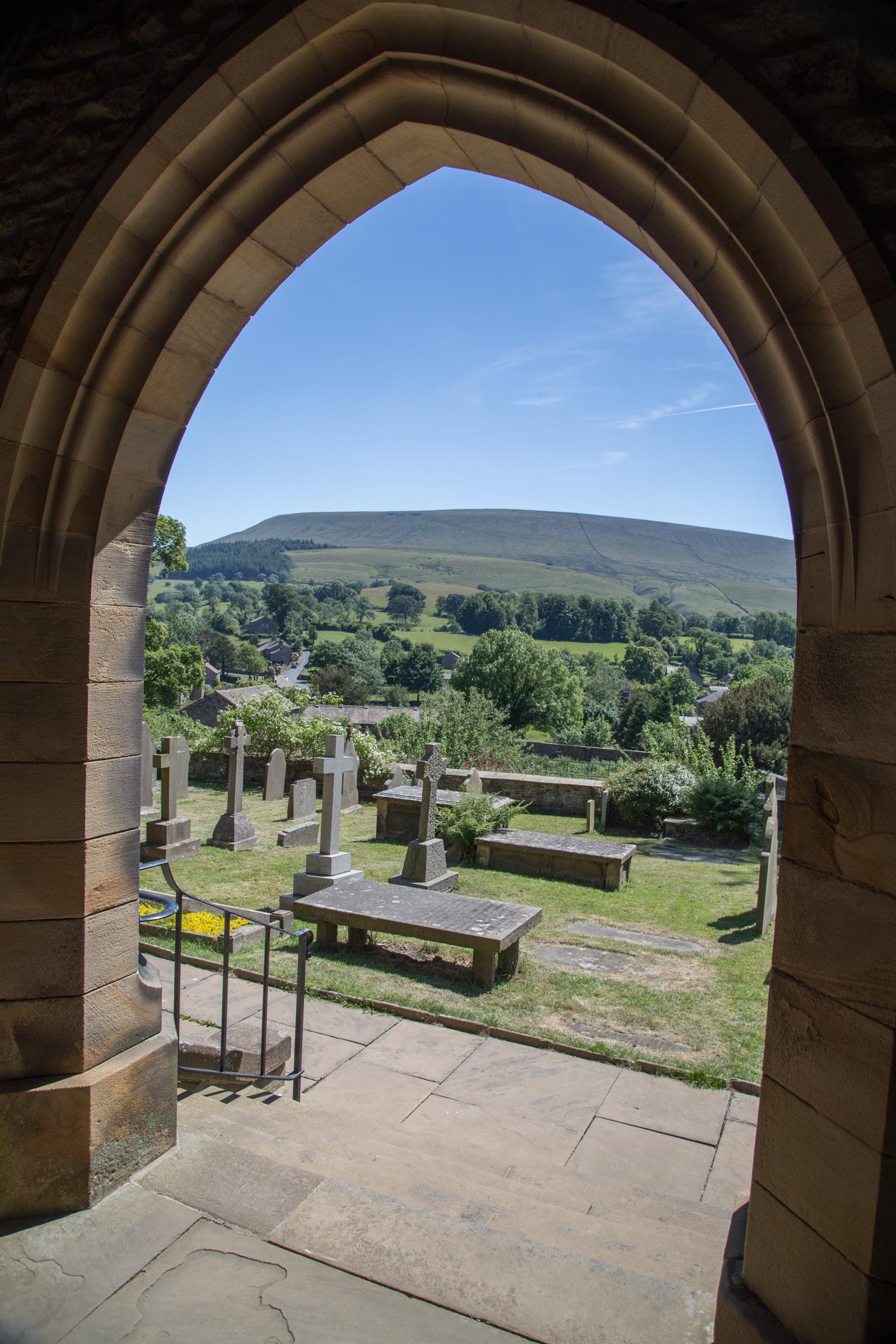
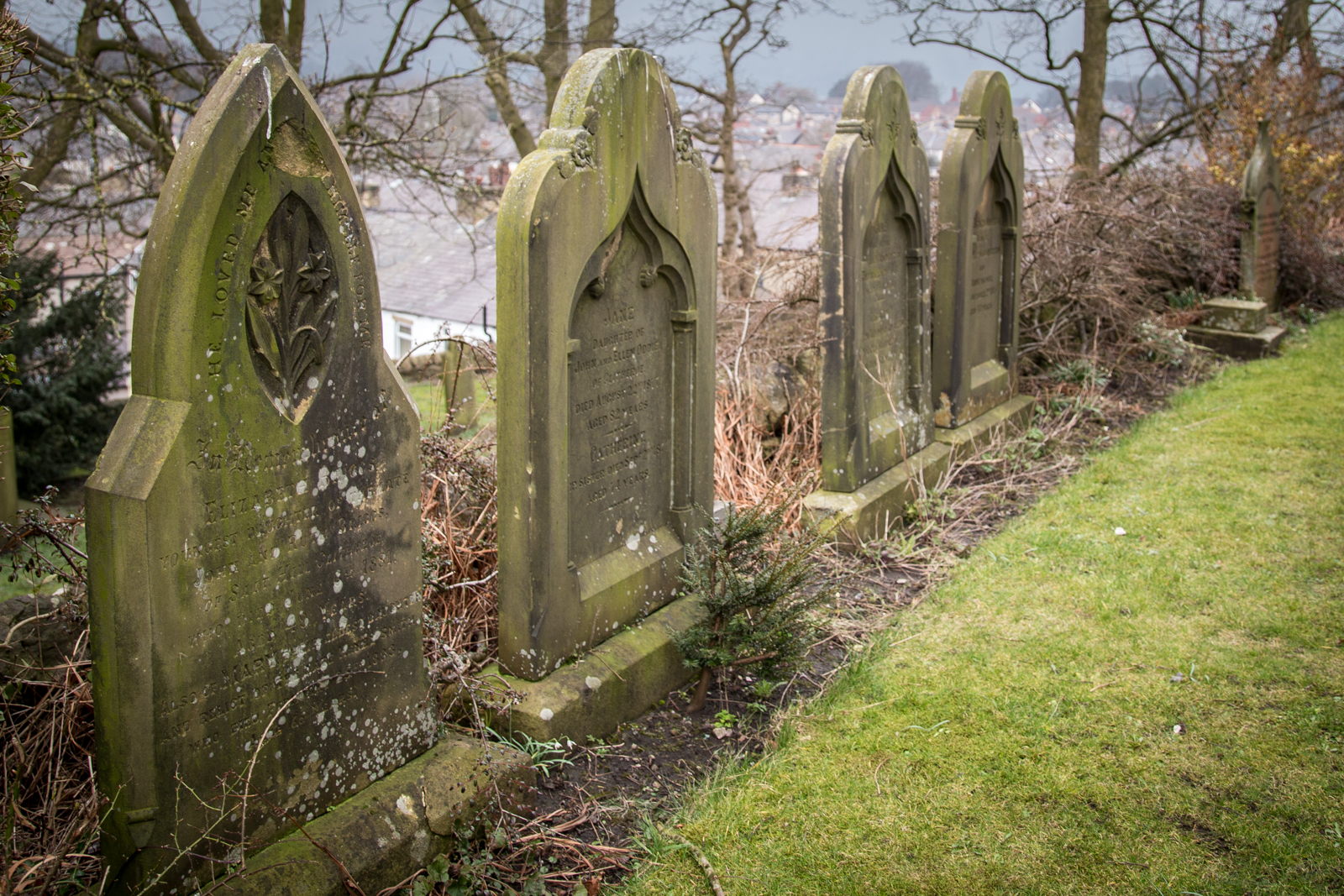
It’s wonderful that so many people were able to pull together and make all these improvements possible. Another project you have run is a Death Café which you started in 2014. Could explain what a Death Café entails?
We run a Church of England variation of the Death Café called Gravetalk. All we do is put on tea and cake – cake is very important – and the Church of England produce these cards with questions on them like, ‘What music do you want played at your funeral?’. You can hand out the cards, shuffle them, or just decide which are interesting questions. Then people can just talk about it in an informal and non-threatening way. And people can then ask those questions like ‘How do we know this is really so and so’s ashes?’. One of the undertakers in town is hoping we can have an open day at the crematorium so that people can just have their mind set at ease really about the whole process of dying which I would love to do actually. Dying is something we’re all doing, all the time.
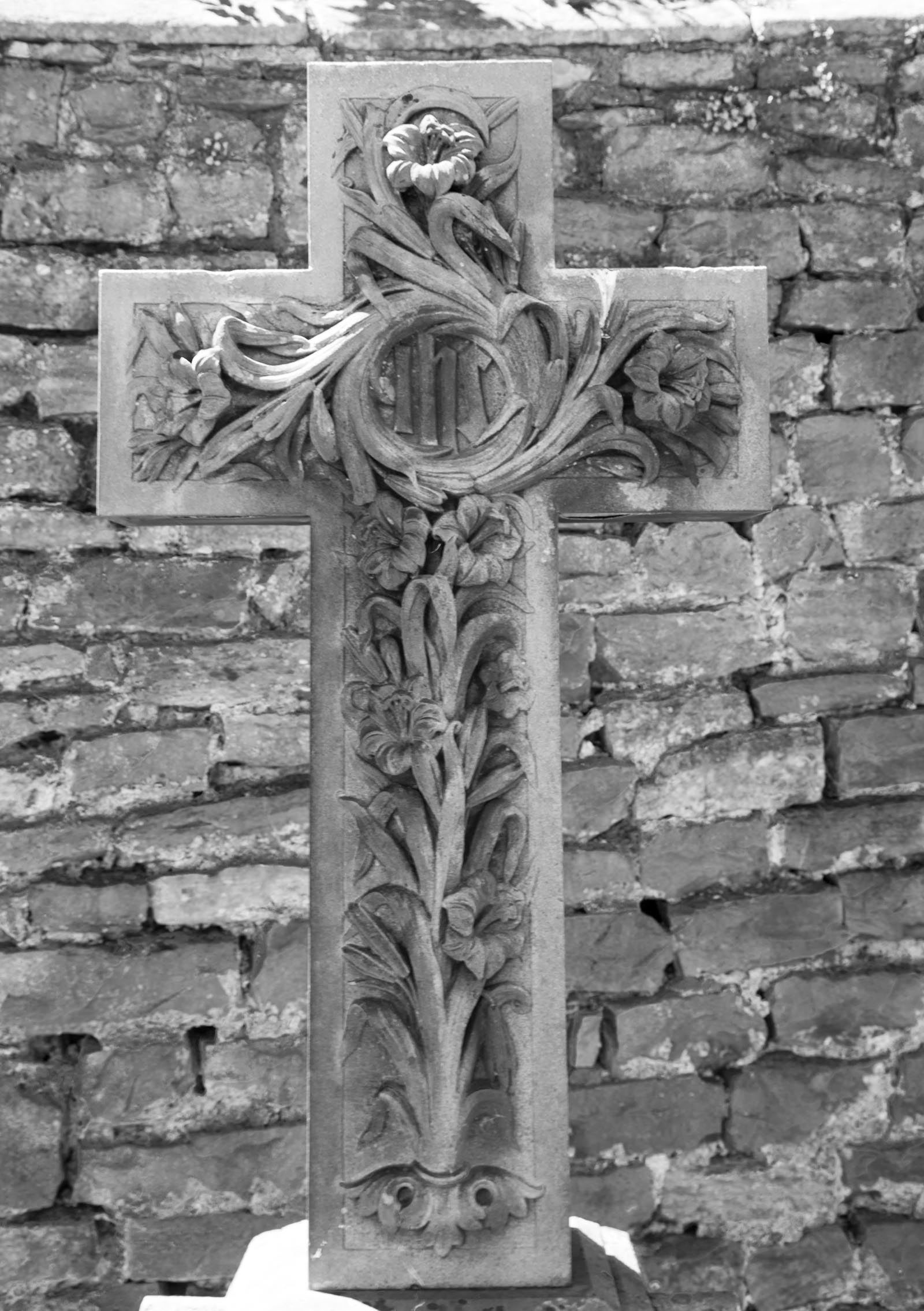
Why do you think it is that death is so often considered a taboo subject despite the fact that it is something we will all encounter?
I guess it’s fear isn’t it. But dying can be happy. I remember one of the first funerals I took, and I have probably taken over a thousand funerals now, one of the first funerals I took was in Huddersfield and it was for a guy who was 90 years old and he’d died mending fences on the moor. So living life the way he wanted to live it…but this is the really interesting thing about Gravetalk, or Death Café, you end up not so much talking about death as talking about life. It’s well, what do you want out of life? What are the most important things to you? What makes it so special?
A funeral is actually a celebration of life, certainly for Christians, I can’t speak for humanists. It’s sort of saying death is not the end, death doesn’t win. That’s what I believe anyway. Of course death can be very sad but by talking about it, it does make it a little bit less frightening. It’s good to be able to ask the questions.
If this subect can be made a little bit less frightening what are your thoughts on talking about death with children?
I often talk to the children because you can talk to them in a way that you can’t talk to adults. I’ll say “It’s funny that grown ups say ‘He’s gone to a better place but then they start crying!” It seems odd when you think about it like that. You’ve got to explain to children that that’s somebody we won’t see again in this life. I like to think, because I like steam trains you see, that it’s like standing on the platform and waving the train off. You see the train get smaller and smaller in the distance but you know that everybody’s on a journey somewhere and there’s another end to the journey.
There was one time and we couldn’t work out why this lad was so keen to go to his Grandma’s funeral, he was very keen indeed, and after a bit of questioning we discovered that it was because he’d watched Stars Wars: Episode I, The Phantom Menance. At the end one of the Jedis dies – very sad – and they have a funeral with a big open pyre cremation where they actually set fire to the body. This lad thought that that was what Grandma’s funeral would be. He wanted to be the one to light the flame. It was such a disappointment for him to discover that no, the curtains close… ‘oh man!’.
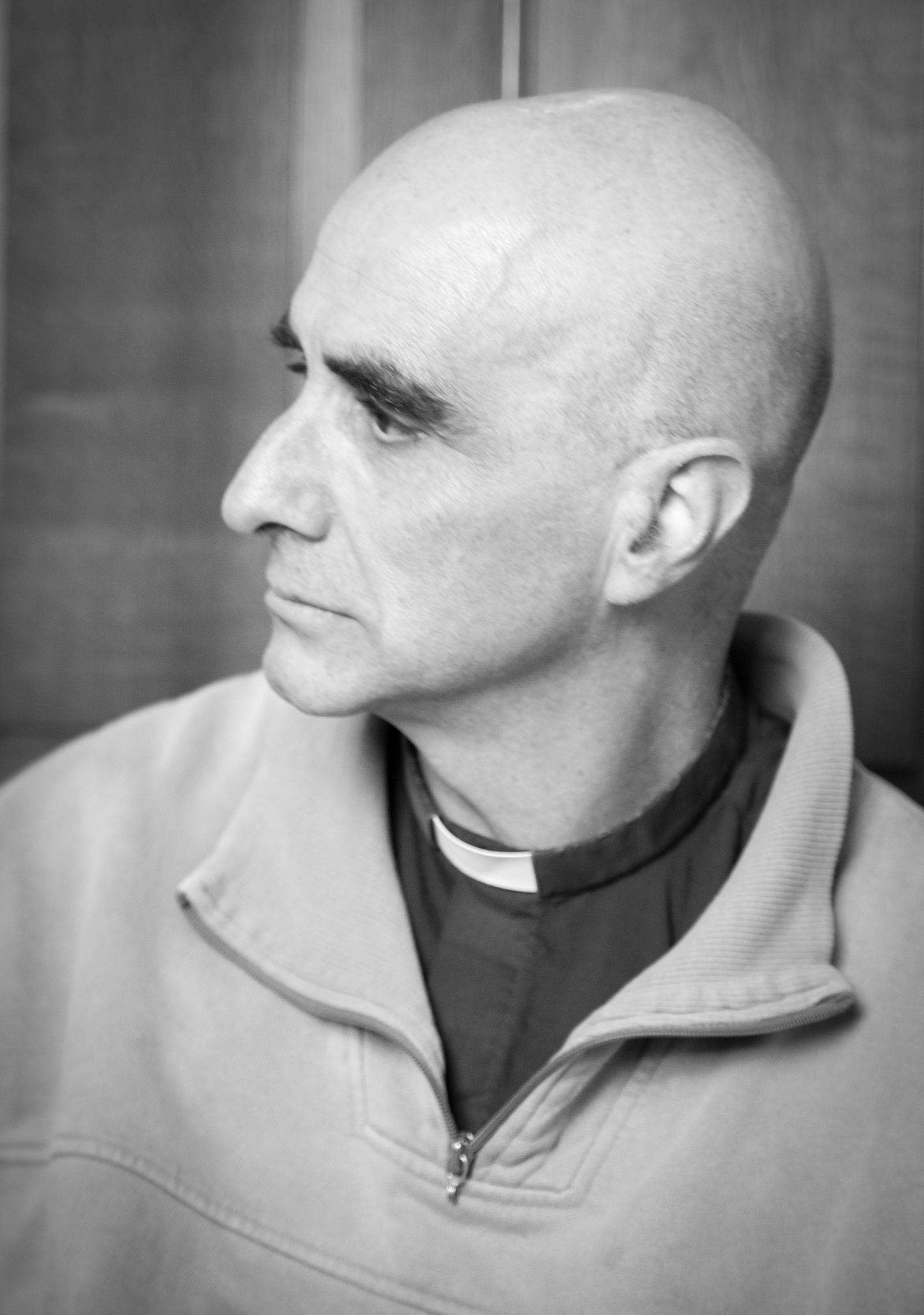
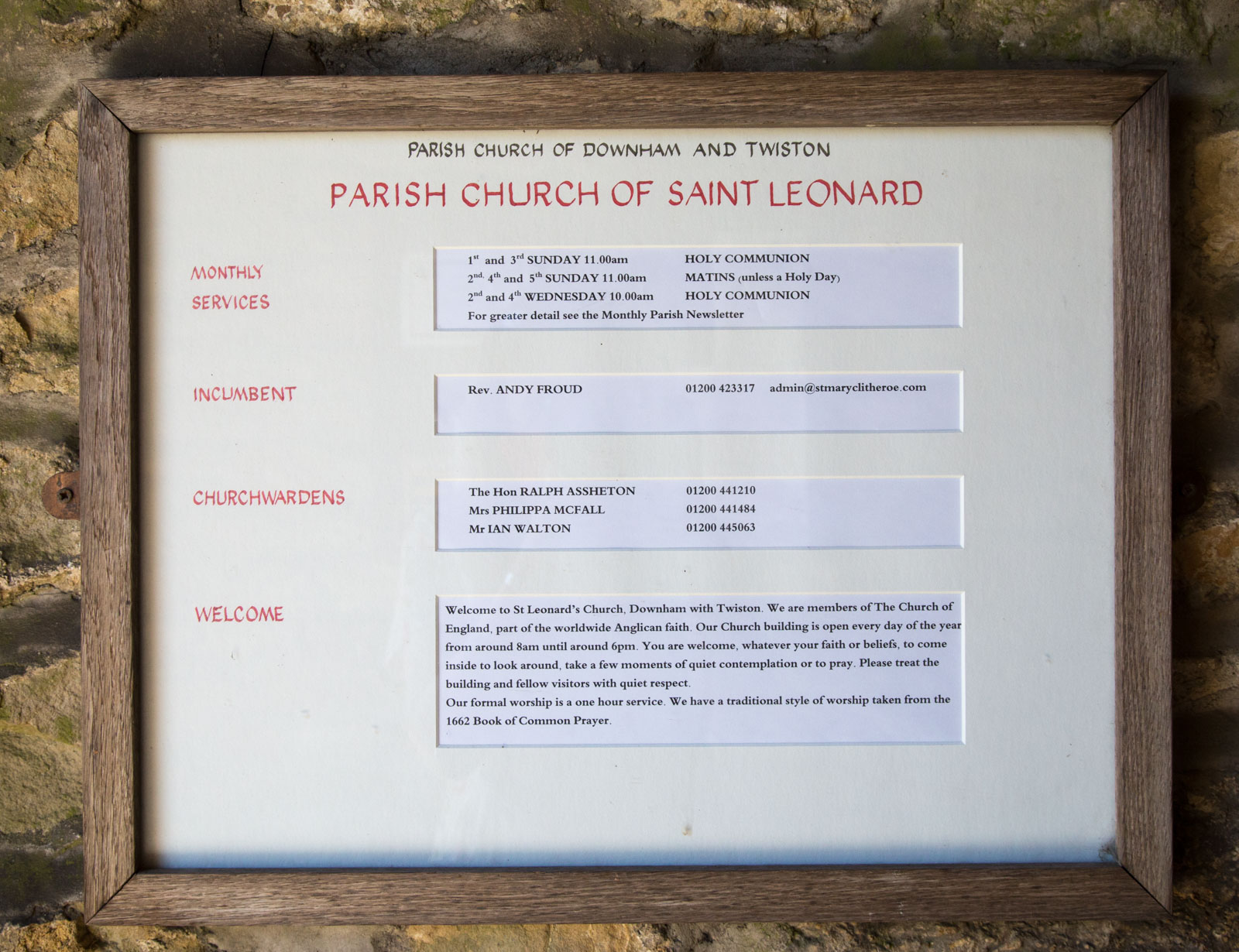
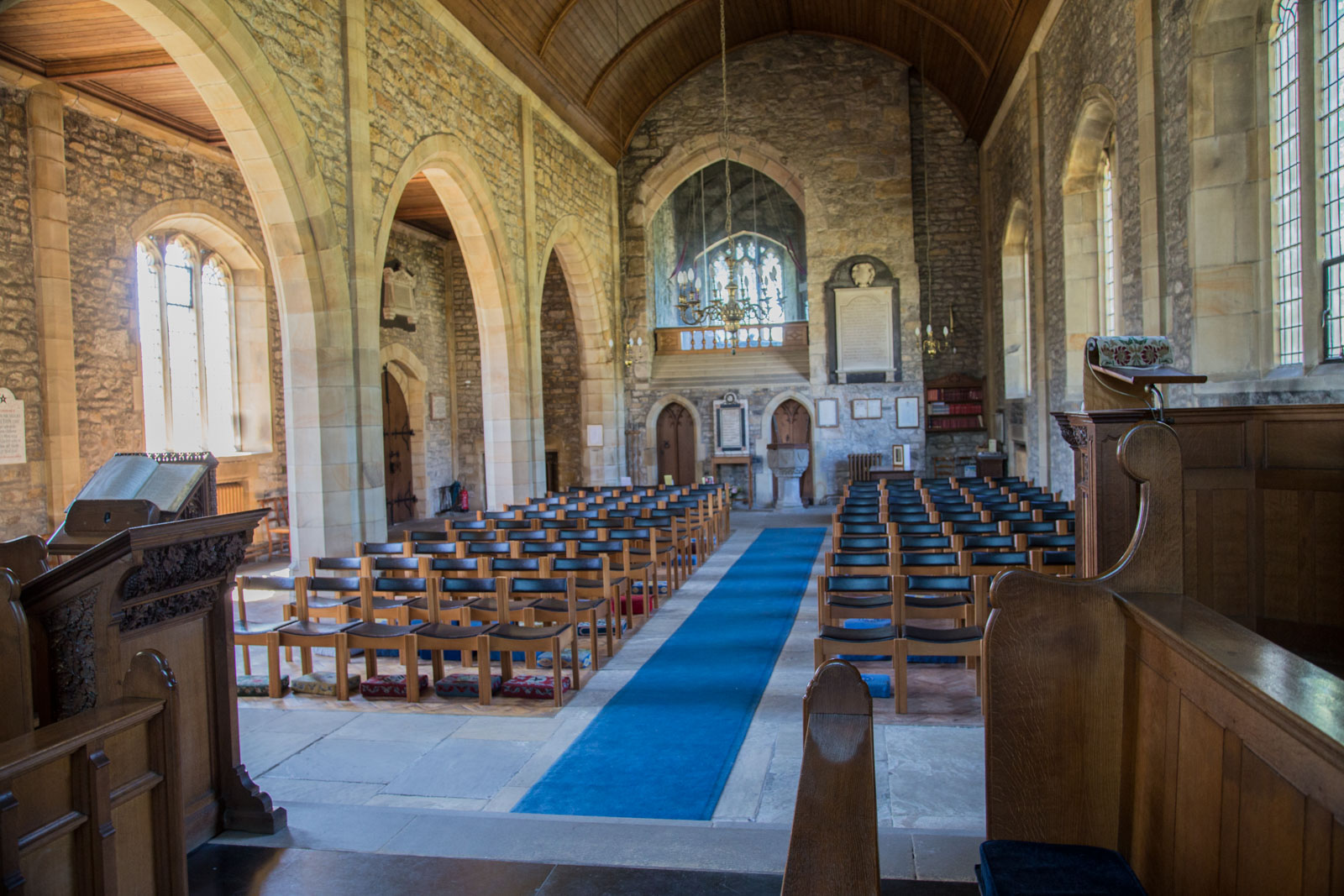
Do you think it’s important for children to be able to attend funerals?
I say to people don’t prevent children from coming to funerals. If children want to come to a funeral I’ll say “Let them come”, if they don’t want to come I’ll say “Don’t force them to come and always make sure you’ve got your arrangements so that on the morning, if they change their mind either way you can either leave them at home or take them with you”. And sadly one of the really devastating things that you have to do sometimes is children’s funerals. We had one on the Isle of White where a lady had four children and the baby, the little one died. We had this very tearful service in the graveyard and as we were walking away from the graveyard, the brother said “can we dig him up now to see how he’s getting on?”. A quite innocent question y’know… now we’ve buried him can we dig him back up?
I suppose that demonstrates the importance of keeping an open dialogue with children about death and answering any questions they have. I’ve heard that you have also done some research into local nonconformists. What are your specific research interests?
I was very fortunate to have a sabbatical a couple of years ago, three months off to just study local history, and we have an amazing history here apart from the witches because everybody goes on about the witches. The witches are really interesting, but my interest is the Reformation, Quakerism – the top of Pendle Hill is why we have weekends. Bare with me…George Fox founded Quakerism and Quakers were the first to go into opening chocolate houses. This new thing chocolate was a way of stopping people from going to the pub and getting blind drunk, so it’s good for you. They started the chocolate houses and then they discovered how to make chocolate bars. They Cadburys were one of the big Quaker families, the famous one, and Cadbury’s were the first people to stop a six day week in their factories and have a five day week so their workers could play football on a Saturday. No religious reason to it at all but they were just good employers and introduced a weekend. They believed everybody is equal, that’s the foundational Quaker belief.
You also have somebody like Thomas Jolly who was kicked out of his job in the Church of England when he refused to subscribe to what was then the new prayer book in 1662. He would ride around here preaching illegally, and in those days if you were caught you would be sent to prison. He preached up just past Pendleton and you can still see the staircase at Wymond Houses where he used to preach from. He would preach on a staircase, people would stand around at the bottom, and if the soldiers appeared they had this strange sort of arrangement with those doors where the top bit opens and the bottom bit stays closed… stable doors. Instead of opening in the same direction the top bit would fold down so that it formed a desk for him to preach from, and then if soldiers appeared they pulled the desk up and it went into a door. Then Thomas would hoy it out up the stairs and through the back window apparently.
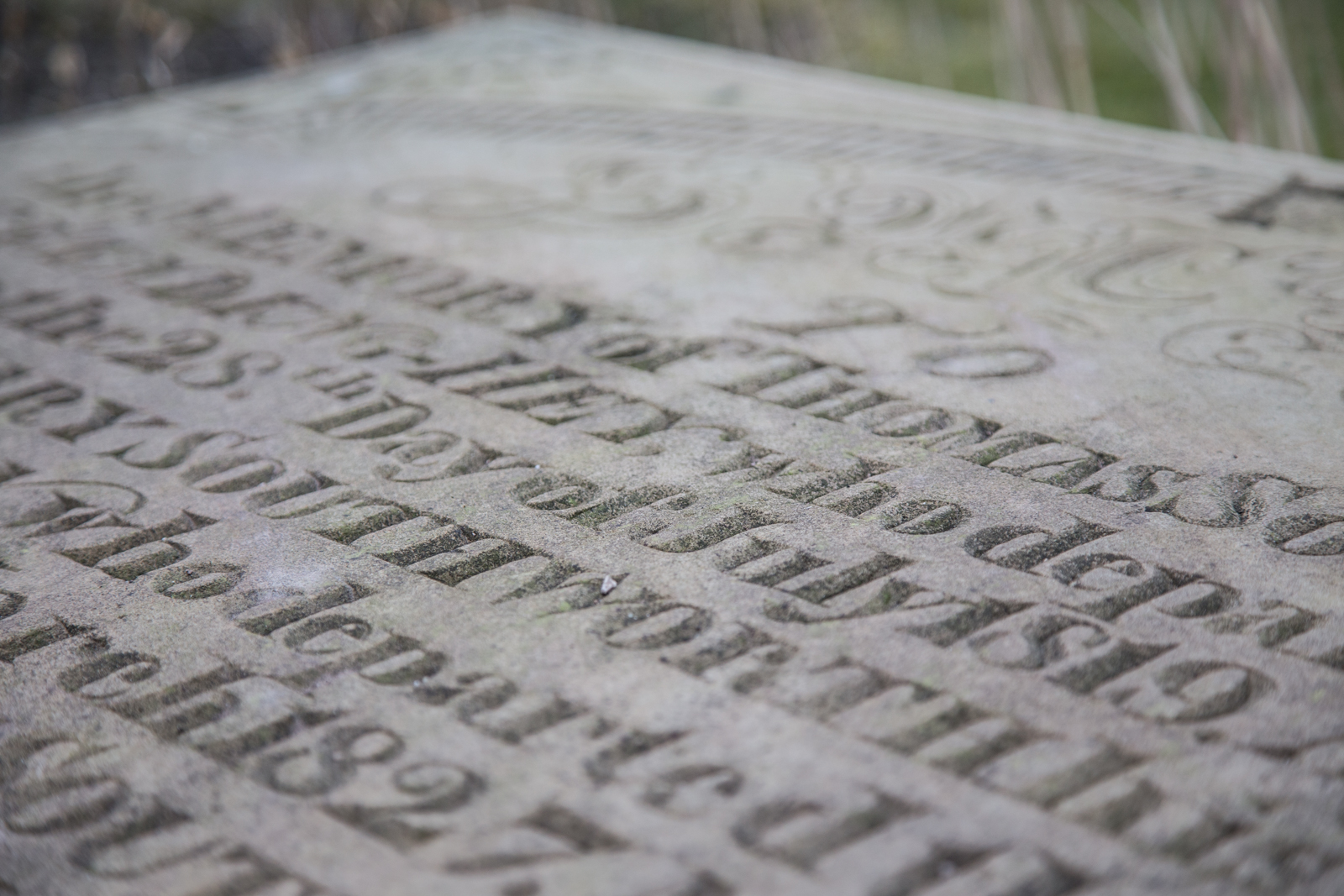
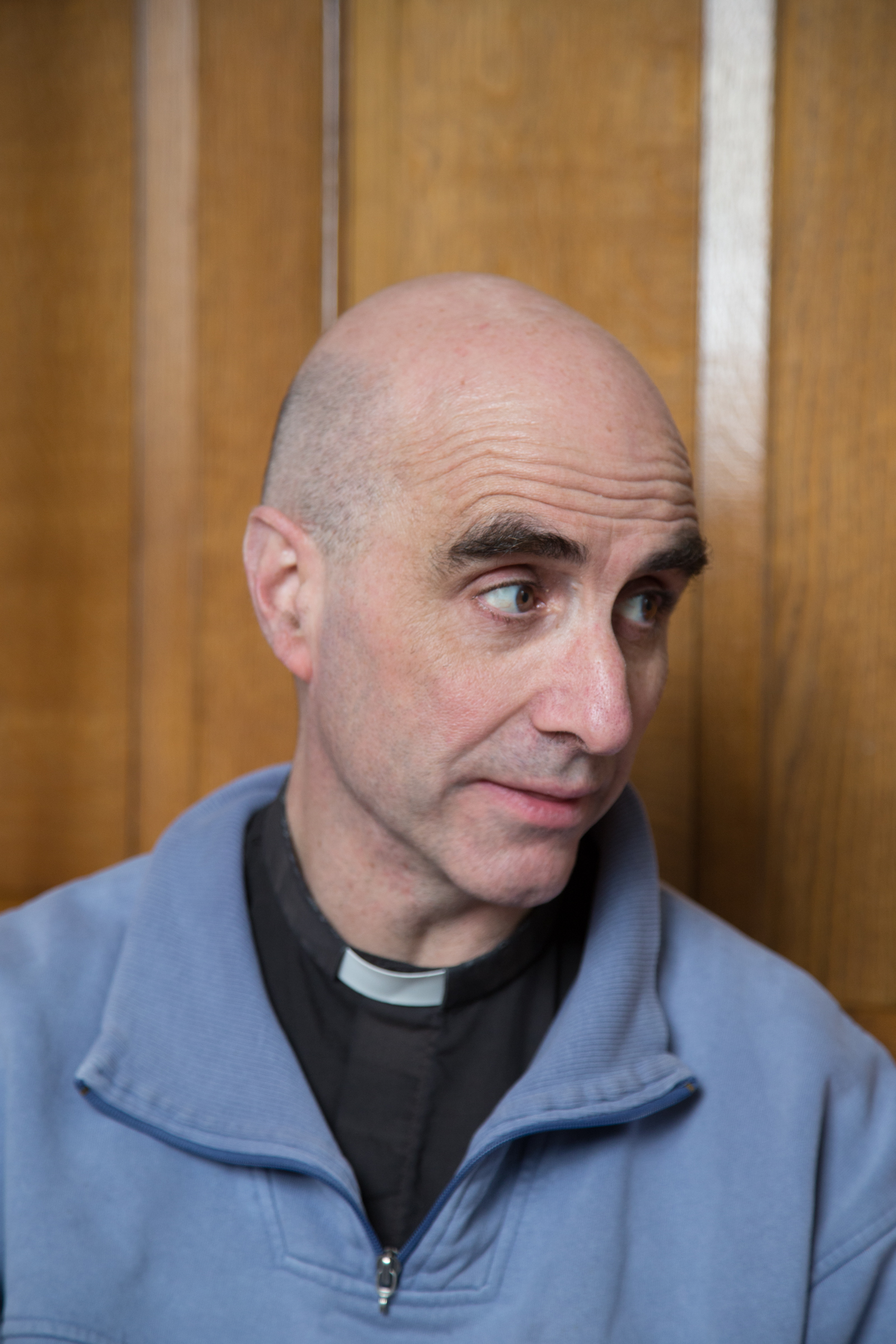
It’s fascinating to learn that there have been so many significant people and events with connections to this area. You found fame yourself on our television screens last year when you appeared on The Chase, how was that?
Oh that was just brilliant! That was so much fun. Bradley Walsh is just as he appears on telly, he’s so funny. It takes about three hours to film just the 50 minute show so a lot of it goes on the cutting room floor as it were. People say ‘Were you nervous?’, I say no because he is very good at setting people at their ease. Little secret is that there is no studio audience, that also helps. There is a lot of laughter but that’s all the sound crew and the film crew. I thought what a great job. I mean I love my job but if I wasn’t doing this I’d love to be a cameraman on The Chase because it’s just so funny. I’ve kept in contact with a couple of the people who were on the team with me. We didn’t win though, as you know, and I did say that I wanted a Land Rover. But, being Clitheroe as I was saying earlier about how kind and generous and good-hearted people are, the day after, on the Saturday morning, somebody gave me a Land Rover…a toy one! I got the Land Rover, I can afford to run it, and the parking is easy!
And finally, you’ve got a name for yourself as a keen runner, can you reveal your favourite running route?
Well, straight up Pendle hill, to the top and back again. Well actually from Mearley Hall, up the side, around, then back down to Downham and then round, circular route. I don’t like going straight up and down because that’s a bit boring. I don’t remember when I first started noticing Pendle but now I definitely feel that when you see Pendle you’re home. It’s a lovely sight from wherever you see it.
